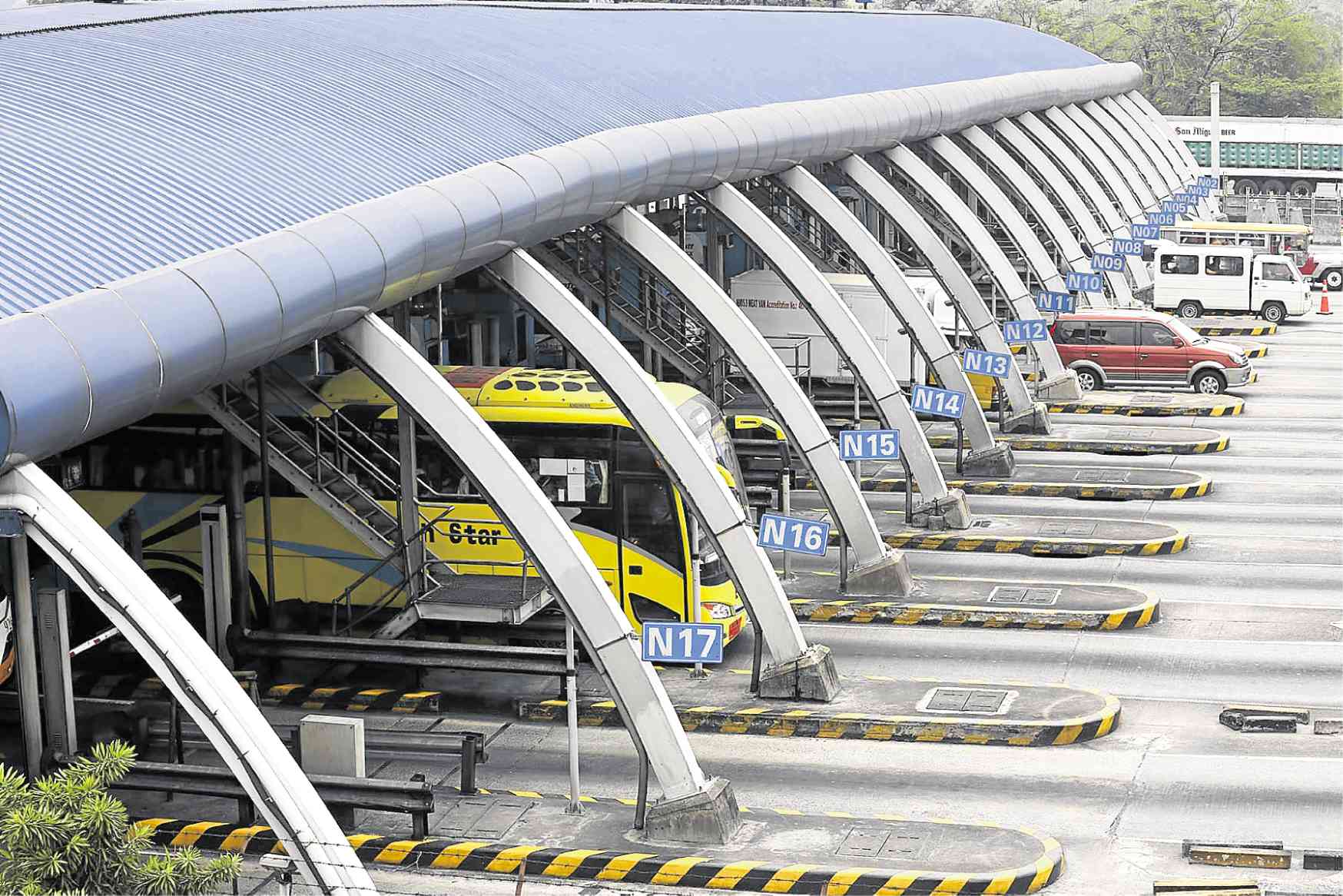
FILE PHOTO: NLEX toll gates. INQUIRER FILES
By June 1, trucks delivering agriculture goods will be exempted from toll hikes on the country’s expressways for three months under a rebate program, as the government aims to bring down logistics costs and stabilize food prices.
The Toll Regulatory Board (TRB), Department of Finance, Department of Transportation and the Department of Agriculture (DA) are working with expressway operators for this project.
Under the Agri-Trucks Toll Rebate Program, the truckers will receive the rebates through their radio frequency identification (RFID) accounts on a weekly basis.
A rebate—equivalent to the implemented toll increase—is to be credited because truckers will still have to pay the full toll when they pass through the interchanges.
This will be computed based on weekly toll transaction reports generated by the tollway operators.
“This program aims to protect the welfare of the general public by minimizing the impact of [the] toll rate increase on the overall inflationary situation to ensure the stability of food prices,” TRB Executive Director Alvin Carullo said.
“The TRB, together with the different government agencies, acknowledges the toll expressway concessionaires and operators for their full support and cooperation, as this will not be possible if they did not agree to implement this exemption,” he added.
900 truckers
About 900 truckers are expected to benefit from the rebate program, Carullo said. He encouraged more of them to register to avail themselves of the cashback benefit.
Carullo explained that the three-month implementation period could be extended depending on the results of the pilot testing. “We will make the proper recommendation to the board after three months,” he said.
The rebate program covers the North Luzon Expressway, Subic-Clark-Tarlac Expressway, R-1 Expressway and R-1 Expressway Extension of the Manila-Cavite Toll Expressway. The rebates for these tollways will range from P4 to P156 per transaction.
For Muntinlupa-Cavite Expressway and South Luzon Expressway, rebates will amount to P2 to P30 per transaction.
To be entitled to the rebate, the truckers must first enroll their RFID accounts under the Food Lane Accreditation Project.
Requirements include an original DA accreditation certificate, a copy of the vehicle’s official receipt/certificate of registration, a valid identification card, and the RFID accounts. The documents will be subject to a verification process within seven working days.
Under the guidelines, the tollway concessionaires shall provide specific lanes for the DA-accredited trucks for ease of accounting for the transaction. The lanes should be nonexclusive “to make sure that the toll plazas’ capacity is not affected for such designation.”
Improved performance
Until recently, the country had lagged behind its neighbors in bringing down logistics costs.
In 2018, the Philippines had some of the highest logistics costs among the 10 members of the Association of Southeast Asian Nations (Asean), according to a Philippine Institute for Development Studies study.
In the same year, the Philippines ranked 60th out of 160 countries in the Logistics Performance Index (LPI) of the World Bank.
But in the latest LPI, it jumped several spots to reach 43rd place, ranking within the top third of 139 economies. From sixth among Asean countries in 2018, the Philippines now ranks fourth ahead of Indonesia, Cambodia and Laos, the 2023 report showed.
According to the World Bank report, “improving logistics performance requires countries to consider it as a cross-cutting policy area, as the work crosses the administrative boundaries of transportation, commerce infrastructure, industry, finance, social issues and the environment.”
A separate Department of Trade and Industry report showed that the country’s logistical costs accounted for 24 percent to 53 percent of wholesale prices. On the other hand, shipping and port handling costs covered 8 percent to 30 percent, depending on the route, and roughly 5 percent of the retail price of goods.